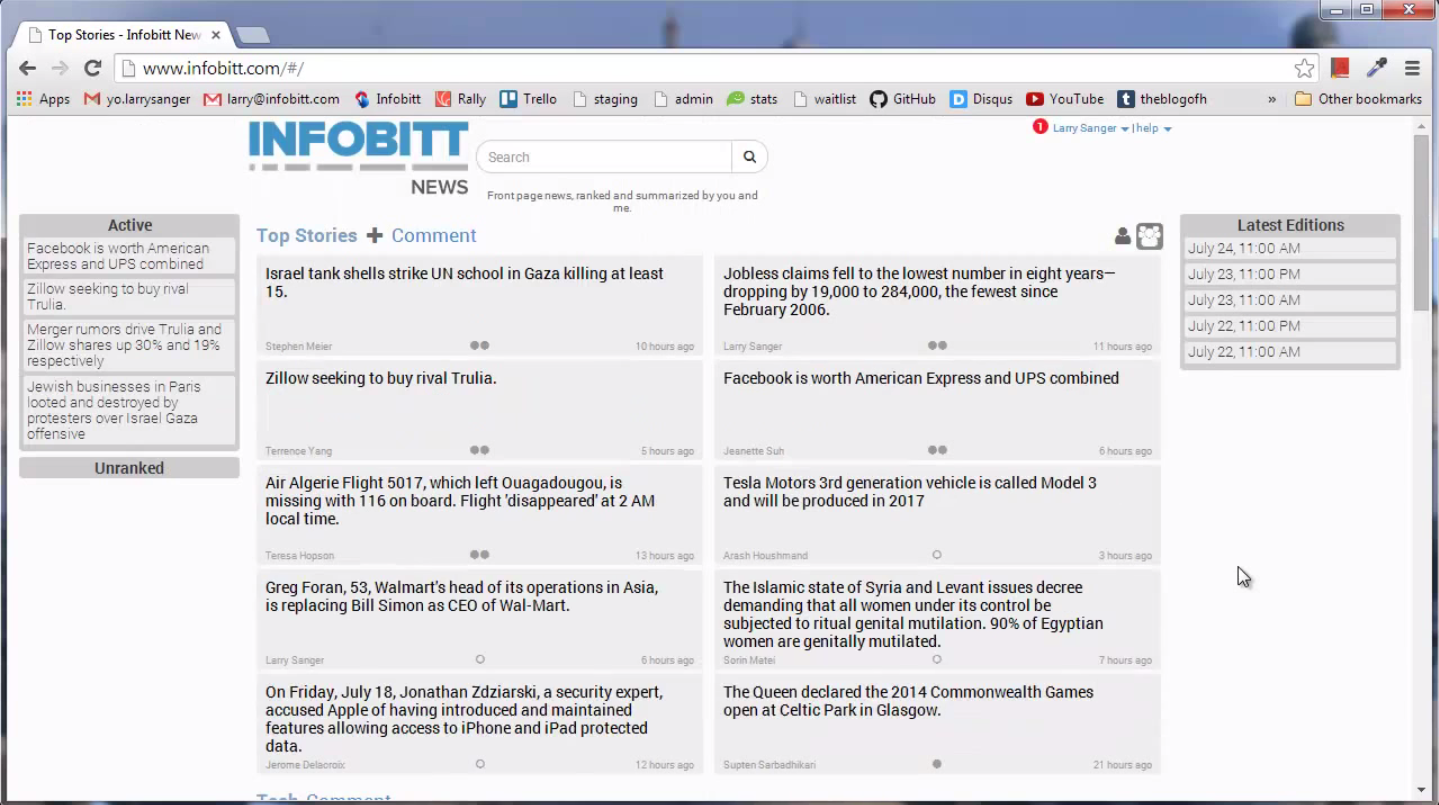
Wikipedia revolutionized the way people amass information. It provides a free, one-stop shop for the Internet's collective knowledge on any given topic. Now, one of the site's founders, Larry Sanger, is launching a 'Wikipedia for news' called Infobitt.
Infobitt says it will be "the world's first crowdsourced front page news site." It calls on users to post news events and aggregate summarized facts for each story. The importance of each fact is determined by votes, which take the form of dragging and dropping the piece of information into a ranking of 10 slots. The collection of facts under each story is called a 'bitt.' The importance of each bitt is also voted on in this way.
On Monday, Sanger took to reddit to answer questions relating to his new venture, explaining the value of his site along the way. "A large part of the reason it takes so long to catch up with the news is that facts are spread out across many different articles," Sanger said, "but the articles are also redundant with each other and with previous reporting.… Infobitt has us pooling our news-hunting activities and benefiting from the results."
Many reddit users wondered how Infobitt would ensure that the site remain neutral. Sanger explained that an elaborate neutrality policy and the site's democratic nature (polarizing views can be ranked down) would act as the foundation to keeping biases in check.
"Even political opponents can agree that certain stories are important, even if there is a difference of opinion about how important," he said. "The fact that there is disagreement means not that stories will be deleted but that their average rank will be between what one side says and what the other side says."
He also explained that the site would actively recruit people with opposing views if one position became too strong and could also use technical fixes to keeping stories balanced.
One person asked how Infobitt would avoid becoming overly bureaucratic like it's Wikipedia predecessor. While Sanger admitted that some policies are needed, he said Infobitt's structure won't require the same type of policing. "Because pieces of content are one sentence long, it becomes possible to simply ask the community which of competing sentences should be displayed and what order they should be in," Sanger said. "This completely sidesteps the interminable edit warring of Wikipedia."
"Wikipedia fills a universal need, or desire, for quick answers," Sanger said. "Similarly, Infobitt will fill a universal need, or desire, to get caught up with the news very fast. We'll make it possible to get caught up five times as fast as you could before. You'll be rushing to Infobitt to include the latest news in the way you now do on Twitter, Facebook, or reddit."
Infobitt has undergone beta testing and is now open to the public. Sanger says that after the goal of 100,000 pledges is reached, he will kick the project into high gear.
Uncommon Knowledge
Newsweek is committed to challenging conventional wisdom and finding connections in the search for common ground.
Newsweek is committed to challenging conventional wisdom and finding connections in the search for common ground.
About the writer
Lauren is a reporter covering technology, national security and foreign affairs. She has previously worked on award winning teams at ... Read more
To read how Newsweek uses AI as a newsroom tool, Click here.








